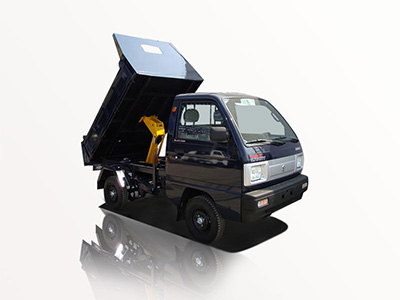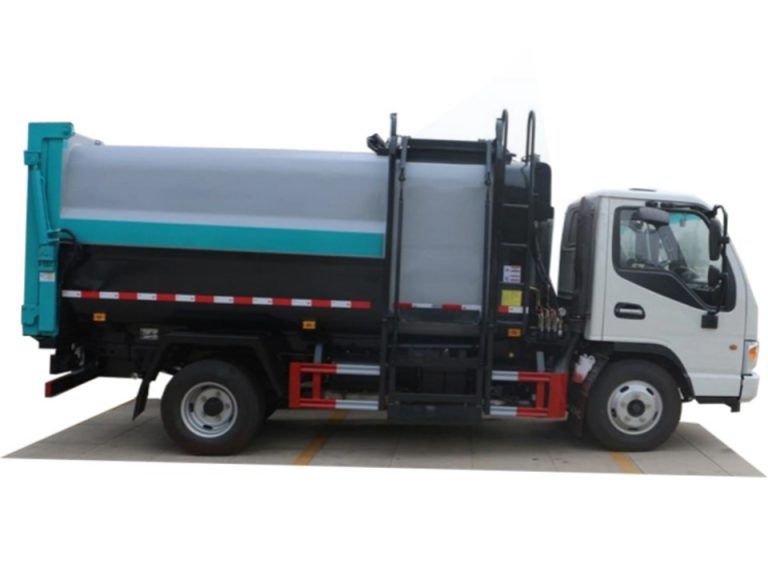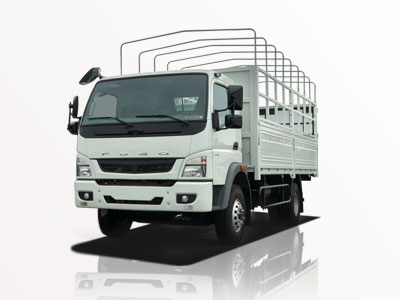When it comes to waste management, one of the most essential vehicles on the road is the dumpster garbage truck. These specialized trucks play a crucial role in collecting and transporting waste from residential and commercial areas to landfills or recycling centers. In this article, we will explore everything you need to know about dumpster garbage trucks, including their types, functions, benefits, and tips for choosing the right one for your needs.
What is a Dumpster Garbage Truck?
A dumpster garbage truck is a commercial vehicle designed specifically for the collection and transportation of waste. They are equipped with features that aid in efficiently loading and unloading large bins or containers—commonly known as dumpsters—that hold garbage or recyclables. These trucks are a staple in waste management, helping maintain clean communities and ensuring that waste is disposed of properly.
Types of Dumpster Garbage Trucks
Dumpster garbage trucks come in various designs and sizes, each tailored for specific waste management needs. Understanding these differences is crucial for effective waste disposal.
1. Rear Loader Trucks
Rear loader trucks are among the most common types of dumpster garbage trucks. They have a large opening at the back, allowing waste to be collected from dumpsters positioned behind the truck. They are particularly effective for residential waste collection.
2. Front Loader Trucks
Front loader trucks are designed to lift and dump larger containers, often used in commercial settings. These trucks utilize a specialized hydraulic system to lift dumpsters located in front of the vehicle. They are ideal for businesses that produce a high volume of waste.
3. Side Loader Trucks
Side loader trucks collect waste from the side rather than from the rear or front. Many side loader trucks are automated, operated remotely, allowing for efficient collection without requiring manual labor. This type is particularly popular in residential areas.
4. Roll-Off Trucks
Roll-off trucks are designed to transport large, open containers known as roll-off dumpsters. These trucks are often used for construction projects, large cleanouts, and other applications requiring significant waste disposal capacity. Roll-off containers can be easily transported once they are filled.
How Dumpster Garbage Trucks Work
The functioning of a dumpster garbage truck involves several steps that ensure waste is collected efficiently.
Step-by-Step Process
- Pick-Up: The truck approaches the designated waste collection point.
- Loading: Depending on the truck type, the waste is loaded either manually or automatically into the truck’s compartment.
- Transportation: Once filled, the truck transports the waste to a disposal site, landfill, or recycling facility.
- Unload: Upon reaching the destination, the waste is unloaded, either by tipping the truck or lowering the dumpster.
Benefits of Using Dumpster Garbage Trucks
Using dumpster garbage trucks offers multiple advantages for both residents and businesses. Here are some key benefits:
1. Efficiency
Dumpster garbage trucks are designed for quick and effective waste collection. Their specialized features enable them to handle large volumes of waste, reducing the amount of time spent on collection.
2. Safety
These trucks minimize manual labor, reducing the risk of injuries associated with lifting heavy loads. Automated systems also enhance safety for the crew.
3. Environmental Impact
Dumpster garbage trucks play a significant role in keeping communities clean and reducing litter. By ensuring timely waste disposal, they mitigate the risk of pollution and health hazards.
4. Cost-Effective
For businesses, using dumpster garbage trucks can help lower waste disposal costs in the long run. Efficient collection minimizes the need for multiple pickups and can lead to lower operational costs.
Choosing the Right Dumpster Garbage Truck
When selecting a dumpster garbage truck for your needs, consider the following factors:
1. Size and Capacity
Choose a truck that fits your specific waste collection needs. For smaller residential areas, a smaller truck may suffice, while larger commercial operations may require a more substantial vehicle.
2. Type of Waste
Consider what type of waste you’ll be collecting. Different trucks are designed for different types of waste, such as recyclables, hazardous materials, or general refuse.
3. Operating Mechanism
Think about whether you prefer an automated system or a manual one. Automated systems are typically more efficient but may come with a higher upfront cost.
4. Budget
Assess your budget for purchasing or renting a dumpster garbage truck. Costs can vary widely based on the make, model, and features of the truck.
5. Fuel Efficiency
With rising fuel costs, it’s wise to consider the fuel efficiency of the truck. Opting for a fuel-efficient model can lead to significant savings over time.
Real-World Examples of Dumpster Garbage Truck Use
Now that we’ve explored the technical aspects of dumpster garbage trucks, let’s look at some practical examples of their use in various contexts.
Residential Waste Collection
In suburban neighborhoods, rear loader trucks typically service homes on a weekly basis. Waste bins are placed curbside for easy access, allowing residents to dispose of their household waste efficiently.
Commercial Waste Management
In a bustling city center, front loader trucks are used by restaurants and retail stores that generate a high volume of waste. These trucks make frequent stops to ensure businesses can maintain cleanliness.
Construction Site Waste Removal
On construction sites, roll-off trucks are often employed to handle debris and construction materials. These trucks can easily drop off and pick up large containers as needed to keep the site clean and organized.
Maintenance of Dumpster Garbage Trucks
Regular maintenance is essential for keeping dumpster garbage trucks functioning at their best. Here are some maintenance tips:
1. Regular Inspections
Conduct routine inspections to catch potential issues early on. Check the hydraulic systems, brakes, lights, and tires.
2. Cleanliness
Keep the truck clean to prevent odor and contamination. Regular cleaning of the interior and exterior is crucial.
3. Oil Changes
Stay on schedule with oil changes to ensure smooth operation. Regular oil changes prolong the life of the truck’s engine.
4. Training for Operators
Ensure that operators are trained in safe driving and operation procedures. Proper training helps avoid accidents and prolongs equipment life.
The Future of Dumpster Garbage Trucks
With advancements in technology and increased awareness of environmental issues, the future of dumpster garbage trucks is evolving. Here are some emerging trends:
1. Electric Garbage Trucks
Electric models are gaining popularity due to lower emissions and reduced operating costs. These trucks are quieter and more environmentally friendly.
2. Automation and Smart Technologies
Many dumpster garbage trucks are now being equipped with smart technologies that optimize routes and monitor performance, enhancing efficiency.
3. Sustainable Practices
Waste management companies are increasingly adopting sustainable practices, such as recycling and composting, making waste disposal more eco-friendly.
FAQs About Dumpster Garbage Trucks
1. How much does a dumpster garbage truck cost?
The cost of a dumpster garbage truck can vary significantly based on size, type, and features. Typically, prices can range from $100,000 to $400,000.
2. How often are dumpster garbage trucks serviced?
Service frequency depends on usage and manufacturer recommendations. Regular maintenance every 3,000 to 5,000 miles is common, along with routine inspections.
3. Can dumpster garbage trucks be rented?
Yes, many companies offer dumpster garbage trucks for rent. This option is suitable for short-term projects or businesses that do not require a truck year-round.
4. What types of waste can dumpster garbage trucks handle?
Dumpster garbage trucks can handle a wide range of waste, including general refuse, construction debris, recyclables, and organic waste, depending on the truck type.
5. Are there weight limits for dumpster garbage trucks?
Yes, each truck has a specific weight limit determined by its design and capacity. Overloading can cause damage and safety hazards.
6. How can I improve the efficiency of my dumpster garbage truck operations?
To improve efficiency, consider optimizing routes, scheduling regular maintenance, and training operators on best practices for safe and effective waste collection.



